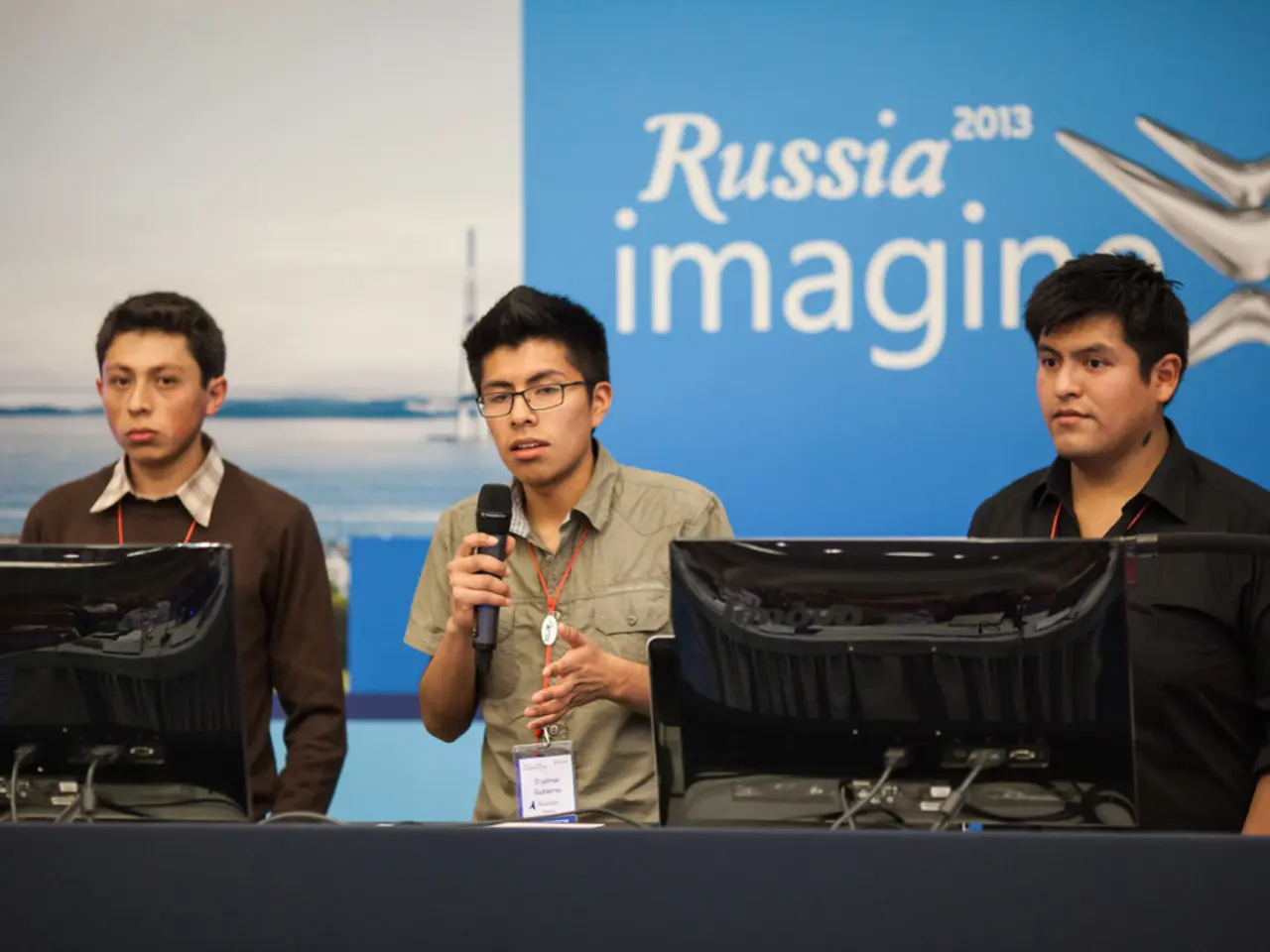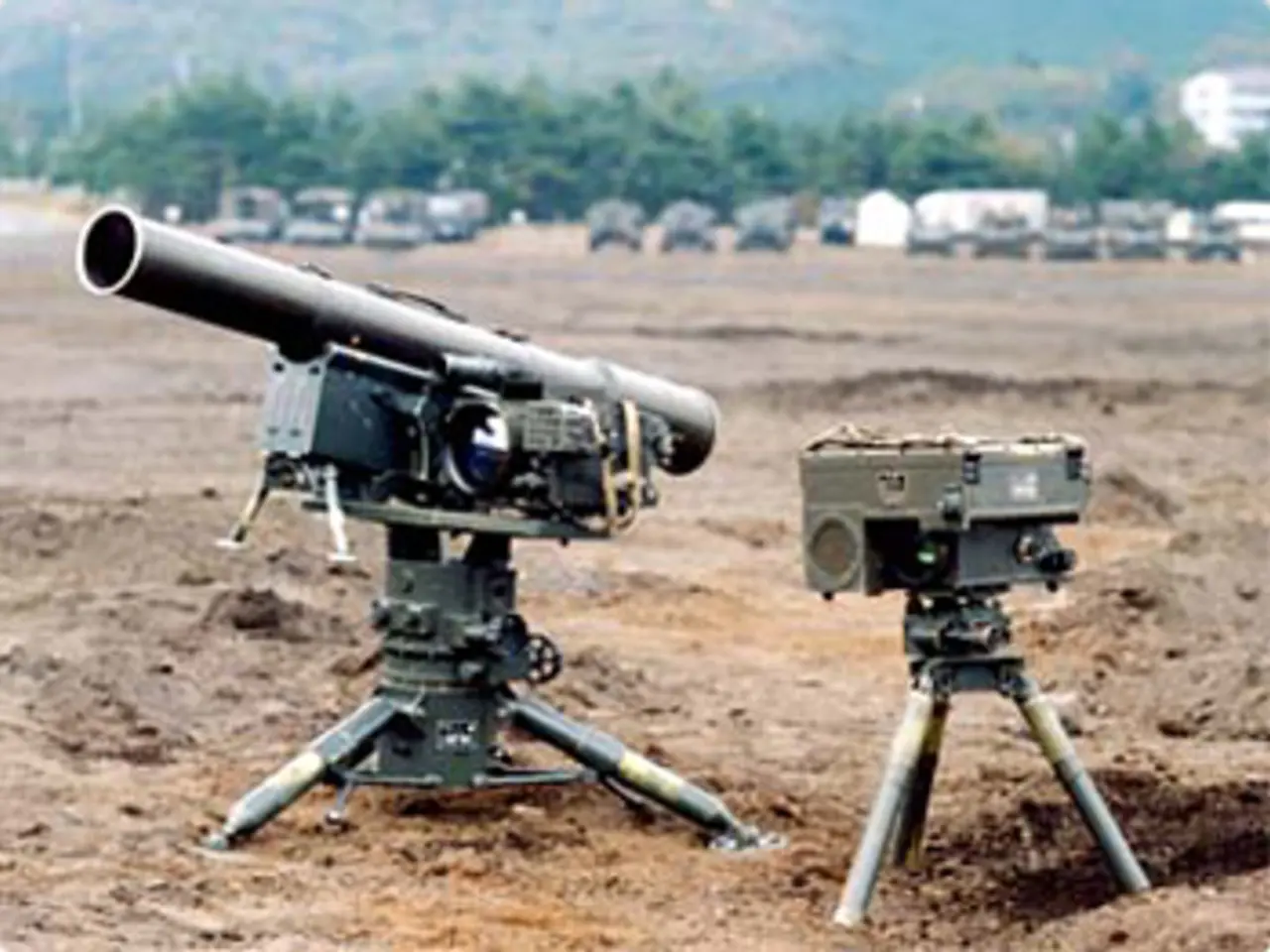Approximately 25,000 North Koreans to assist Russia in drone-related acts of terrorism.
Let's dive into the latest news about Russia's escalating drone attacks on Ukraine. The production of Shaheds has surged, with nightly attacks numbering in the hundreds, causing a significant toll in casualties. Now, it appears that Russia's production capacities are set to soar even higher, thanks to assistance from North Korea.
According to reports from Japan's public broadcaster, North Korea is considering sending workers to bolster Russia's drone production. In exchange, Pyongyang could receive training in operating unmanned aerial vehicles, as suggested by diplomatic sources from the West and Russia.
The Labor Powerhouse Moving to Tatarstan
Reports indicate that around 25,000 North Korean workers are heading to the Alabuga Special Economic Zone in Tatarstan, Russia. With Russia suffering heavy losses in Ukraine and a shortage of citizens, foreign labor is crucial for keeping defense industries running.
However, the Alabuga Special Economic Zone has been embroiled in controversy due to allegations of deceitful practices towards foreign workers. For instance, luring African women from impoverished backgrounds with promises of training, only to put them to work manufacturing drones like Shaheds or Geran-2 [Enrichment Data: 1].
The Expanding Shahed Assaults
Russia's drone attacks on Ukraine have substantially increased over the past few weeks, with the Ukrainian government reporting between 300 to 500 daily attacking objects. This represents a sharp increase compared to the past, where the number of drones was much lower [Enrichment Data: 2].
Military expert Colonel Reisner, in an interview with ntv.de in May, predicted that Russia would bolster production capacities to produce up to 500 Shaheds per day [Enrichment Data: 2].
Solidifying an Ally
Russia and North Korea signed a Comprehensive Strategic Partnership Treaty last year. North Korea has been supporting Moscow with ammunition and weapons, and thousands of North Koreans are fighting alongside Kremlin troops [Enrichment Data: 3].
Recently, it was announced that 1,000 North Korean pioneers would be stationed in the Kursk region, in addition to 5,000 military builders helping with reconstruction efforts following the Ukrainian offensive [Enrichment Data: 3].
Implications
For Russia, the addition of North Korean labor helps compensate for the heavy personnel losses in Ukraine, while expanding its drone arsenal. For North Korea, this partnership offers the chance to learn advanced drone technology and enhance its military capabilities [Enrichment Data: 4].
Geopolitically, this alliance strengthens both countries' positions against Western adversaries, providing economic benefits and opportunities to develop drone production capabilities [Enrichment Data: 4][5].
In summary, the arrival of 25,000 North Korean workers marks a significant expansion in military-industrial cooperation, giving Russia an edge in the drone warfare against Ukraine, while simultaneously boosting North Korea's own military capabilities. This strategic alliance has far-reaching implications for security dynamics in Eurasia [Enrichment Data: 1][2][3][4][5].
- As Russia's drone warfare against Ukraine intensifies, the community policy within the Alabuga Special Economic Zone is under scrutiny, particularly regarding the alleged mistreatment of foreign workers, including those from North Korea, who are now aiding in the production of employment-related policies such as drone production.
- The political implications of this partnership extend beyond the war-and-conflicts zone, as the partnership between Russia and North Korea in drone production and military-industrial cooperation could have significant impacts on general news and international relations, potentially shaping the future of drone employment policies and escalating tensions with Western adversaries in Eurasia.








